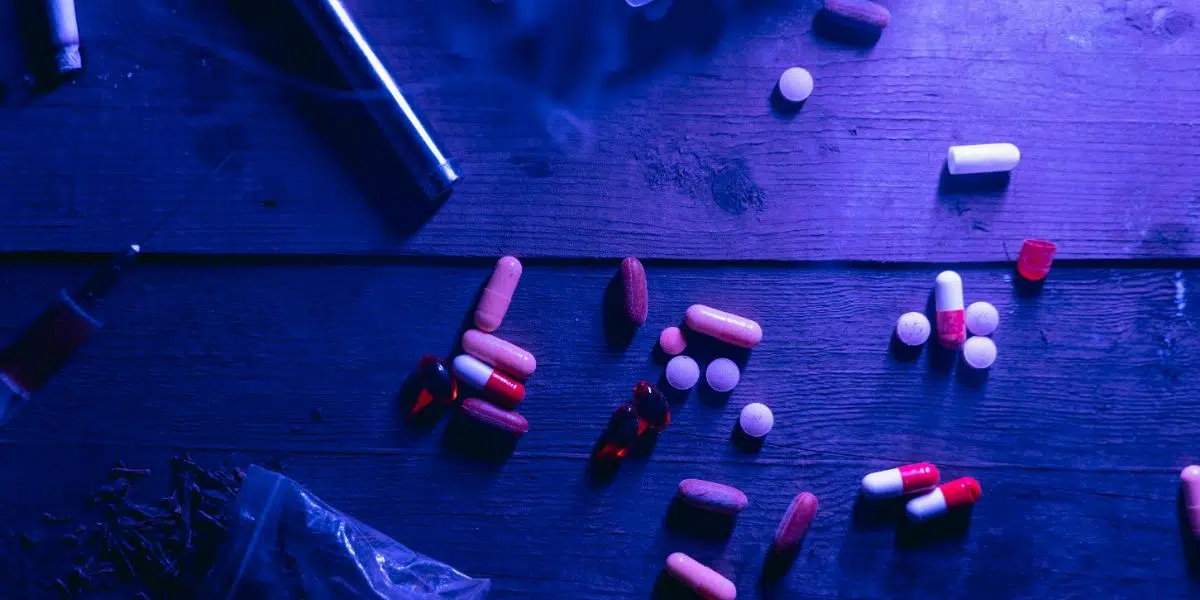Welcome to our comprehensive guide on the different types of medication used in medication-assisted detox. Whether you or a loved one are struggling with addiction, understanding the options available for treatment is crucial in finding the right path towards recovery.
Detox services play a crucial role in the journey towards sobriety, and medication-assisted detox has proven to be an effective method in managing withdrawal symptoms and reducing the risk of relapse. However, with so many types of medication available, it can be overwhelming to navigate through the various options.
In this article, we will delve into the world of medication-assisted detox and provide you with a thorough understanding of the different types of medications used. From common drugs like methadone and buprenorphine to lesser-known options such as naltrexone and clonidine, we will cover it all.
Our goal is to equip you with the knowledge and understanding needed to make informed decisions about your or your loved one’s treatment plan. So, let’s dive in and explore the various types of medication used in medication-assisted detox.
When it comes to overcoming addiction, a holistic approach is often the most effective. This means addressing both the physical and mental aspects of addiction through detox, therapy, counseling, and alternative or holistic methods. In this article, we will focus on the detox aspect of holistic rehab and explore the different types of medication used in medication-assisted detox.
Firstly, it’s important to understand that medication-assisted detox is not a standalone treatment for addiction. Rather, it is a part of a comprehensive rehab program that also includes therapy and counseling. Medications are used to manage withdrawal symptoms and cravings, making the detox process more comfortable and increasing the chances of successful recovery.
Some common medications used in medication-assisted detox include:
- Methadone: This medication is commonly used to manage withdrawal symptoms and cravings in individuals addicted to opioids. It works by binding to the same receptors in the brain as opioids, but without producing the same intense high. This allows for a gradual tapering off of opioids and a smoother detox process.
- Buprenorphine: Similar to methadone, buprenorphine also binds to opioid receptors to manage withdrawal symptoms and cravings. However, it has a lower risk of abuse and dependence compared to methadone, making it a preferred option for many individuals.
- Naltrexone: This medication blocks the effects of opioids in the brain, making it useful for preventing relapse in individuals who have completed detox. It can also be used to manage alcohol cravings.
- Antidepressants: These medications are often prescribed during medication-assisted detox to help with depression and anxiety that may occur as a result of withdrawal. They can also be helpful for managing cravings.
In addition to these medications, other medications may be used on a case-by-case basis depending on the individual’s needs and specific addiction. It’s important to note that medication-assisted detox should always be overseen by a medical professional to ensure safety and effectiveness.
Overall, medication-assisted detox is an important aspect of holistic rehab and can greatly improve the chances of successful recovery. By managing withdrawal symptoms and cravings, individuals can focus on the therapy and counseling aspects of their treatment without being distracted by intense physical and mental discomfort.
Remember, addiction is a complex disease and there is no one-size-fits-all approach to treatment. If you or a loved one is struggling with addiction, seek help from a professional who can create a personalized treatment plan that includes medication-assisted detox.
Naltrexone
Naltrexone is a commonly used medication in medication-assisted detox for individuals struggling with opioid addiction. It works by blocking the effects of opioids in the brain, making it less likely for someone to relapse while undergoing detox.
Antidepressants
When it comes to medication-assisted detox, antidepressants are often used to help individuals manage co-occurring mental health disorders. These medications can be an important tool in the holistic approach to addiction treatment.
Co-occurring mental health disorders, such as depression or anxiety, are common in addiction and can make the recovery process more challenging. In medication-assisted detox, antidepressants are prescribed to help alleviate symptoms of these disorders and support the individual through the detox process.
Antidepressants work by balancing chemicals in the brain that regulate mood and emotions. By addressing these imbalances, they can help reduce symptoms of depression and anxiety, allowing the individual to focus on their recovery without being hindered by their mental health.
It’s important to note that antidepressants alone are not a comprehensive treatment for addiction. They should be used in conjunction with therapy, counseling, and other holistic methods to address all aspects of the individual’s addiction.
Methadone
Methadone is a long-acting opioid that can help manage withdrawal symptoms for those addicted to opioids like heroin or prescription painkillers. It is a synthetic opioid that works by binding to the same receptors in the brain as other opioids, but with a slower onset and longer duration of action.
In medication-assisted detox, methadone is used to help ease the symptoms of withdrawal and reduce cravings for stronger opioids. It is typically given in a controlled and monitored setting, such as a clinic or treatment center.
One of the benefits of using methadone in detox is that it can help prevent relapse by reducing the intensity of withdrawal symptoms and minimizing cravings. This can make it easier for individuals to stay committed to their recovery journey.
However, it is important to note that methadone itself can be addictive and should only be used under the guidance of a medical professional. It is typically tapered off over time and may be replaced with other medications as part of a comprehensive treatment plan.
Anti-anxiety medications
During medication-assisted detox, anti-anxiety medications may be prescribed to help manage the symptoms of withdrawal. These medications work by targeting the neurotransmitter GABA, which helps to reduce feelings of anxiety and promote relaxation.
Some commonly used anti-anxiety medications during detox include:
- Benzodiazepines: These medications are often used in detox as they have sedative and hypnotic effects, which can help with insomnia and anxiety.
- Buspirone: This medication is often used as an alternative to benzodiazepines, as it has a lower risk of dependence and abuse.
- Hydroxyzine: This medication is an antihistamine that can help with symptoms of anxiety, such as nausea and vomiting.
It is important to note that while these medications can be helpful in managing anxiety during detox, they should only be used under the supervision of a medical professional. Abruptly stopping these medications can lead to withdrawal symptoms and potential relapse. Therefore, it is important to follow a tapering schedule as recommended by a doctor.
Suboxone
Suboxone is a combination of buprenorphine and naloxone, which works by binding to the same receptors as opioids in the brain, reducing withdrawal symptoms and cravings. This medication is often used in medication-assisted detox to help individuals safely and comfortably withdraw from opioids. Buprenorphine is a partial opioid agonist, meaning it activates the same receptors as opioids but to a lesser degree, reducing the risk of overdose and abuse. Naloxone is an opioid antagonist, which blocks the effects of opioids, preventing users from getting high. Together, these two medications can help individuals manage their withdrawal symptoms while also reducing their cravings for opioids. Suboxone is typically administered in the form of sublingual films or tablets, which are placed under the tongue and allowed to dissolve. This allows for faster absorption into the bloodstream and quicker relief from withdrawal symptoms. The dosage of Suboxone will vary depending on the individual’s needs and the severity of their addiction. It is important to work closely with a medical professional to determine the appropriate dosage for each individual. While Suboxone can be a highly effective medication in medication-assisted detox, it is important to note that it is not a cure for addiction. It should be used as part of a comprehensive treatment plan that includes therapy, counseling, and support groups to address the underlying issues contributing to the addiction. With proper medical supervision and support, Suboxone can help individuals safely and successfully overcome their opioid addiction.While medication-assisted detox is an important component of holistic drug and alcohol rehab, it should always be combined with therapy and counseling for long-term recovery. It’s important to work closely with a healthcare professional to determine the best course of treatment for your individual needs.
Take the first step with Carrara Treatment
Dr. Blair is a licensed clinical psychologist working in the field for twelve years. She went to college in New York City before moving to Southern California and completing her graduate work. She has worked in various roles in treatment, including being a therapist, group facilitator, working in administration, and writing curriculum. Dr. Blair is passionate about addiction and individual and family therapy and continues to love her work in both private practice and treatment centers.



